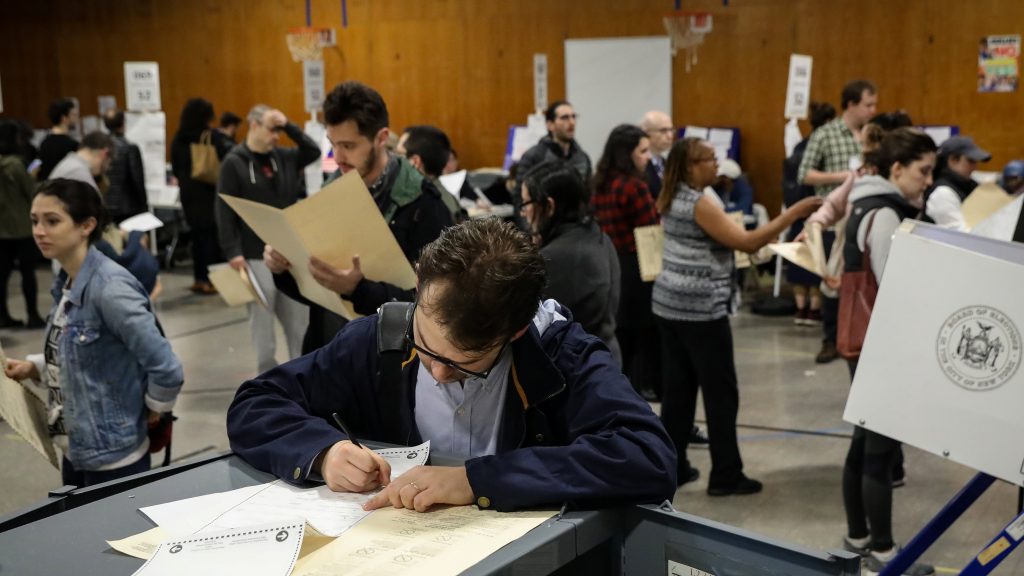The national political conventions have ended, the parties have nominated their candidates for president, and the election season is entering its final weeks.
It is a good time for us to pray for our country and reflect on our duties as citizens and believers.
The scriptures teach us that we have “no lasting city” here on earth. Our citizenship is in heaven and we seek the city that is to come.
But as the prophet Jeremiah reminded the Israelites when they were exiled in Babylon, we are called to work for the good of the earthly city in which we live.
The early Christians prayed for civic leaders. They blessed those who rejected them, and responded to the evil around them by doing good.
Even in the face of hatred and persecution, they never compromised their beliefs or Jesus’ teachings. “We must obey God rather than men,” they said.
The Acts of the Apostles is the blueprint of the first evangelization. It should still be our blueprint.
In it, we see how the first believers refused to be conformed to the spirit of the age or the fashions of the culture. They preached the Word urgently, in season and out of season.
At Ephesus, they challenged the idols of the economy and society; at Athens, they engaged the ideals of cultural and intellectual elites.
In Acts, the Church’s opponents complain that the disciples “have turned the world upside down.”
The early Christians never tried to change the world by using power or violence, but they turned the world upside down by proclaiming and practicing values and virtues that the world had never seen before.
They proclaimed that God loves us, that he wants us to love others as he loves us; they practiced mercy and compassion, especially for the weak; they loved even their enemies and taught that we should care for everyone, even those outside our “group.”
We take these ideas for granted now, but they came into the world with Jesus and were first spread by his Church.
The early Church was the first to proclaim the sanctity of all human life.
Athenagoras, a Christian layman, wrote this to the emperor Marcus Aurelius in the second century: “For we regard the very fetus in the womb as a created being, and therefore an object of God’s care.”
Those first Christians were willing to die for their beliefs, and for their right to live by their beliefs. Religious freedom was another new idea the Church brought into the world.
Sometimes we can think that our world is so complicated now that it’s impossible to live our faith with the same clarity as those first Christians.
But our challenges are the same, and our mission remains.
Once again this year, the U.S. bishops have given us excellent resources to help us reflect on our obligations as citizens and followers of Christ. I urge you to visit their website (usccb.org).
I also urge you to reflect on the Catechism’s sections on respect for human life (nos. 2258–2330), on the person and society (nos. 1877–1948), and on Catholic social doctrine (nos. 2419–2449).
Catholics are not a political party or a voting bloc, we have no policy platform.
But we are called by Jesus, each of us by baptism, to continue the mission of those early Christians, the mission of spreading the Gospel’s values and ideals in our society.
In our day that means we must defend the dignity of the human person, from conception to natural death, and we must defend the freedom and equality of every person, no matter what their race or where they come from.
We are called to make this world more like God created it to be.
That means being good stewards of creation. It means building a society where men and women have work that enables them to lead a dignified life, to get married and have children, and to know they will have security if they are disabled and when they are sick and old.
There is a beautiful letter from the early Church that says: “What the soul is to the body, Christians are to the world.”
This is how we need to think about our lives. We are the “soul” of the world.
Each of us can bring the love of Christ into every element of our lives, spreading his joy and peace in all our dealings with our neighbors, in our work and in our participation in society.
That’s how the early Christians lived. And that’s how, in our times, we can turn the world upside down again.
Pray for me and I will pray for you.
And let us entrust these coming weeks to Our Lady of the Immaculate Conception, patroness of this great country.

